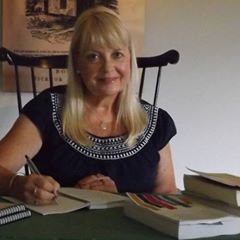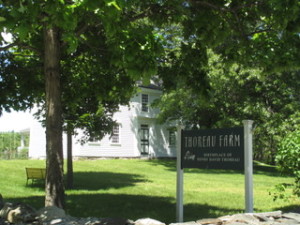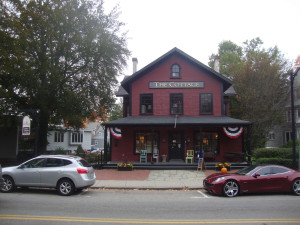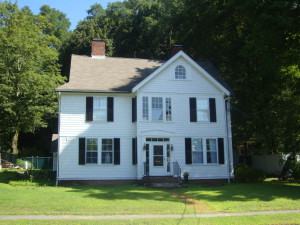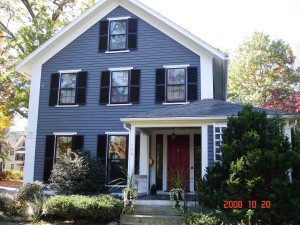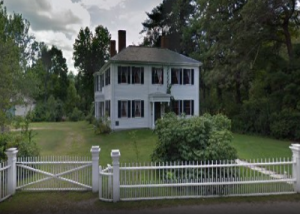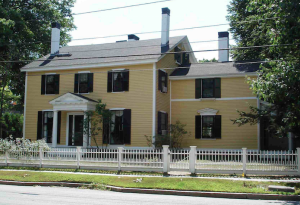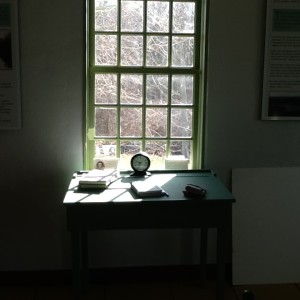By Donna Marie Przybojewski
“I am alarmed when it happens that I have walked a mile into the woods bodily without getting there in spirit. In my afternoon walk. I would fain forget all my morning occupations, and my obligations to society. But it sometimes happens that I cannot easily shake off the village. The thought of some work will run in my head, and I am not where my body is. I am out of my senses. In my walks I would fain return to my senses. What business have I in the woods, if I am thinking of something out of the woods?” — “Walking,” HDT
I spent time recently at the Concord Free Library Special Collections rereading Thoreau’s “Walking” revisions. Henry’s lecture brought to mind the need for all of us to remove stress and tension from our minds, before we embark on activities to refresh ourselves.
No one can deny that we live in an age of technological overload, making personal introspection difficult and almost impossible to accomplish. Although technology has made life easier, it also has been the root of many of our problems. Technology pervades our lives and surrounds us with excessive stimuli that makes it challenging to relax and clear our minds. Cell phones, iPods, iPads, and Smart watches keep us connected with the world while complicating our attempts to be stress free.
Henry obviously did not contend with such technology, but he did find it troublesome to leave the world behind at times during his saunters. Even though life was a lot less complicated during Henry’s time, people still had worries, matters to attend to, and anxiety. Even Henry was not exempt from these types of troubles. We all face obstacles at one point or another, but Henry knew it was vital to abandon problems, thoughts, and stress when going into nature, and he was conscious of when he had not done that. Such was the difference. He was perceptive enough to appreciate that removing oneself from all that cluttered the spirit was essential to achieving clarity and health in one’s life. Whenever a person requires time for reflection and personal growth, nothing must muddle the mind.
As an avid hiker in the national parks, I adhere to Henry’s philosophy to leave the world behind and all that does not belong in nature when I am on the trails. It does not matter whether I am climbing to view Delicate Arch at Arches National Park in Utah in the sweltering heat of summer; hiking around the hoodoos in Bryce National Park also in Utah; the Sonoran Desert of Arizona; the Rocky Mountains in Colorado; or simply sauntering on the Towpath of the Cuyahoga Valley National Park near my home.
During such excursions, big or small, my mind is clear of all that creates tension in my life and complicates it. My thoughts are turned to lofty things. As I immerse myself into the beauty of the natural world, my inner self emerges as it becomes refreshed and restored leaving behind all that is troubled and blemished. I gain new perspectives which assist me in reawakening what might have been lost in me.
However, there are moments, when the spirit is willing, the flesh does not cooperate, and I sometimes need a reminder from Henry when I allow the world to creep into my space of solitude during my time in nature.
Now, the same holds true for me when I am at the Writer’s Retreat in the birth room of Henry David Thoreau at the Thoreau Farm. That time is sacred to me because I can only visit once or twice a year. Therefore, the world is left outside as I spend time in reflection and creative growth. During this time, it is vital for me to experience the solitude and spiritual ambiance that the room offers. When I am at the Writer’s Retreat, I find myself energized with creativity and a special inner peace that enables me to exist only in the present, not realizing that eight hours or so has passed in what seems to be minutes.
On my visit in July of 2016, however, I am ashamed to admit, I did not adhere to Henry’s wisdom on that particular day. For some reason, I unfortunately brought the world into the birth room that morning. Now, for a person who does not own a cell phone, I acted as if my life depended upon technology. There happened to be a number of pressing issues in my life that I believed needed to be dealt with, so I brought my iPad with me to check for the email that I was expecting. Immediately, I felt a difference — my sense of peace was missing. I brought the world into the room. Since it is my practice not to leave the birth room once I arrive, this caused me great anxiety. The more I checked my email, the more tension I felt, which caused my heart to race and most likely, my blood pressure as well. There was no peace, no ambiance, and no creative energy.
I was flitting back and forth from my iPad to writing and contemplating. I felt anxious because I was not relaxed and knew I was wasting precious time and could not concentrate or write my thoughts. The more I was aware that time was passing, the more agitated I became. I felt nothing. I was broken. The room was not serving its purpose. Why?
Since I have never had a problem leaving my thoughts behind whenever I stayed at the birth room, this was confusing to me. The only technology I relied on was my iPod because I enjoyed playing the Thoreau Family Flute Book as well as Aeolian harp music. Both were the background to my journaling and meditation. This time though something changed. Even the music had now become a distraction.
This back and forth went on for about two hours when suddenly my iPod went dead. I heard no music. Shrugging, I assumed that the battery went dead and needed to be charged. Although I could not figure out why, since I had charged it the previous night. I went to plug it into an outlet — nothing happened. There was no charge. I thought thought the battery was completely drained and needed to be plugged in for a few more minutes before a light would come on. After twenty minutes, I checked — blank screen. My heart sunk. My iPod was dead —no Aeolian harp and no flute music.
Then it hit me like a ton of bricks. Henry’s words reverberated in my mind, “What business have I in the woods, if I am thinking of something outside of the woods?” Precious time was being wasted because I was not allowing my spirit to leave the world that I was supposed to leave behind. What business did I have trying to contemplate and write if my mind was outside this special room?
Upon realizing this, I quickly shut my iPad and put it away. “I’m all yours, Henry,” I silently thought to myself. Without the technology, including the music, my sense of peace was restored. My respirations were slow and steady, and my mind was clear of all that did not promote the sanctity of this room. The remaining six hours turned out to be one of complete renewal for me and the beginning of an extraordinary journey that I would be taking in the months that lay ahead.
After my time at the Writer’s Retreat was over and I returned to my hotel, a surprising thing occurred. My iPod turned on and worked. Now, I tend to believe in guidance from other realms, and I have no doubt that I was being reminded (perhaps, by Henry) that if my time was to be renewing for me, then I had to leave all that was not necessary behind. It was a remarkable lesson to learn from one who never had a problem doing that. It is a reminder we all need from time to time — leave the world outside. Sometimes, silence can be the most inspirational background music we can hear.
Therefore, I am left with this one thought for the next time I use Henry’s room: “What right do I have to be in the birth room, if I am thinking about something outside the birth room?”
Donna Marie Przybojewski is a teacher and children’s book author, who writes about Henry David Thoreau. Her books provide many young people with their first introduction to Henry and Transcendentalism.

